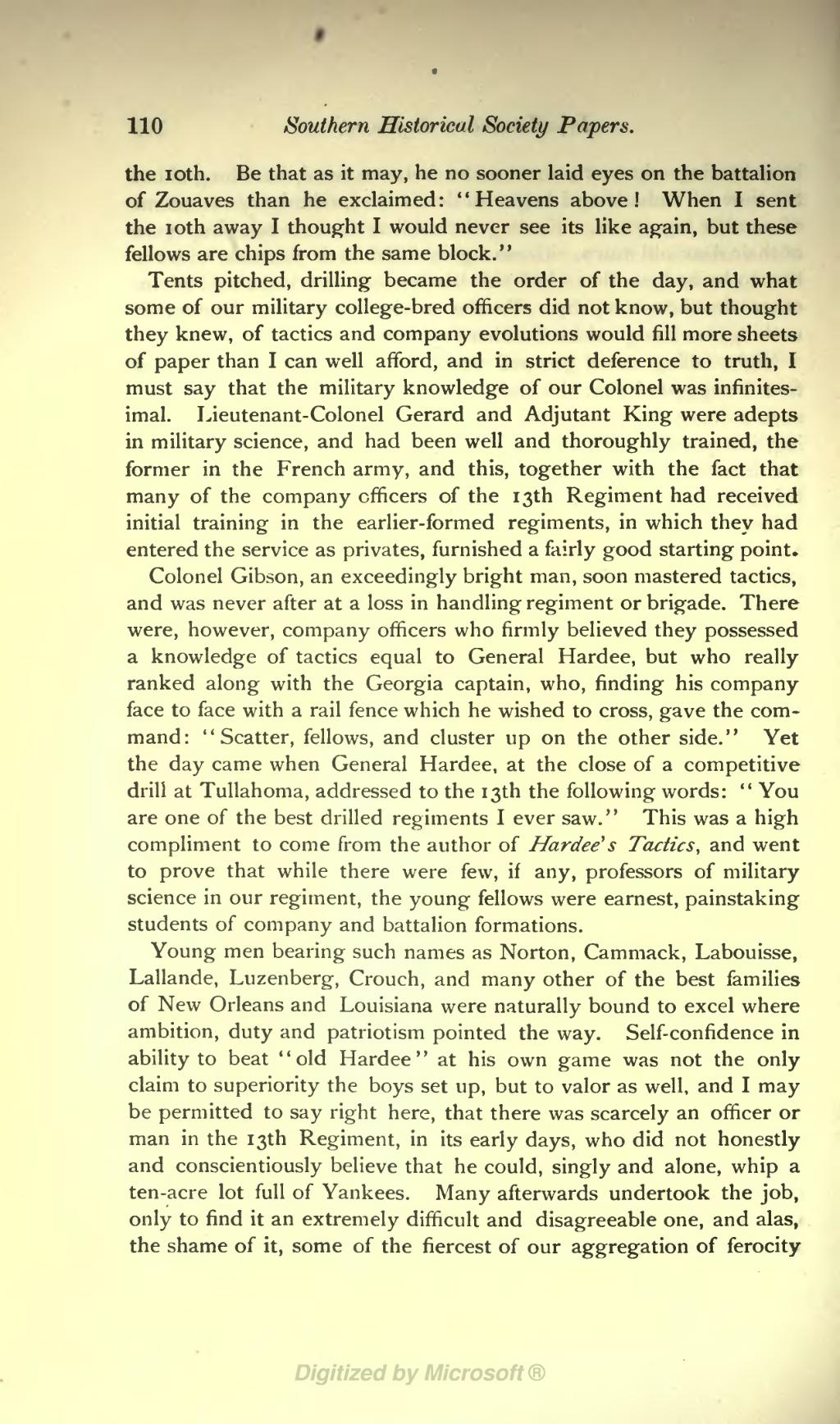110 Southern Historical Society Papers.
the loth. Be that as it may, he no sooner laid eyes on the battalion of Zouaves than he exclaimed: "Heavens above! When I sent the loth away I thought I would never see its like again, but these fellows are chips from the same block."
Tents pitched, drilling became the order of the day, and what some of our military college-bred officers did not know, but thought they knew, of tactics and company evolutions would fill more sheets of paper than I can well afford, and in strict deference to truth, I must say that the military knowledge of our Colonel was infinites- imal. Lieutenant-Colonel Gerard and Adjutant King were adepts in military science, and had been well and thoroughly trained, the former in the French army, and this, together with the fact that many of the company officers of the I3th Regiment had received initial training in the earlier-formed regiments, in which they had entered the service as privates, furnished a fairly good starting point*
Colonel Gibson, an exceedingly bright man, soon mastered tactics, and was never after at a loss in handling regiment or brigade. There were, however, company officers who firmly believed they possessed a knowledge of tactics equal to General Hardee, but who really ranked along with the Georgia captain, who, finding his company face to face with a rail fence which he wished to cross, gave the com- mand: " Scatter, fellows, and cluster up on the other side." Yet the day came when General Hardee, at the close of a competitive drill at Tullahoma, addressed to the I3th the following words: " You are one of the best drilled regiments I ever saw." This was a high compliment to come from the author of Hardee* s Tactics, and went to prove that while there were few, if any, professors of military science in our regiment, the young fellows were earnest, painstaking students of company and battalion formations.
Young men bearing such names as Norton, Cammack, Labouisse, Lallande, Luzenberg, Crouch, and many other of the best families of New Orleans and Louisiana were naturally bound to excel where ambition, duty and patriotism pointed the way. Self-confidence in ability to beat "old Hardee" at his own game was not the only claim to superiority the boys set up, but to valor as well, and I may be permitted to say right here, that there was scarcely an officer or man in the i3th Regiment, in its early days, who did not honestly and conscientiously believe that he could, singly and alone, whip a ten-acre lot full of Yankees. Many afterwards undertook the job, only to find it an extremely difficult and disagreeable one, and alas, the shame of it, some of the fiercest of our aggregation of ferocity
